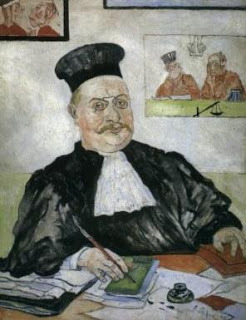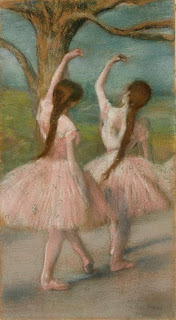Gary Gauthier's Blog, page 3
September 13, 2013
A Troublesome Consequence
 They hanged at Tyburn, in those days, so the street outside Newgate had not obtained one infamous notoriety that has since attached to it. But, the gaol was a vile place, in which most kinds of debauchery and villainy were practised, and where dire diseases were bred, that came into court with the prisoners, and sometimes rushed straight from the dock at my Lord Chief Justice himself, and pulled him off the bench. It had more than once happened, that the Judge in the black cap pronounced his own doom as certainly as the prisoner's, and even died before him.
They hanged at Tyburn, in those days, so the street outside Newgate had not obtained one infamous notoriety that has since attached to it. But, the gaol was a vile place, in which most kinds of debauchery and villainy were practised, and where dire diseases were bred, that came into court with the prisoners, and sometimes rushed straight from the dock at my Lord Chief Justice himself, and pulled him off the bench. It had more than once happened, that the Judge in the black cap pronounced his own doom as certainly as the prisoner's, and even died before him. For the rest, the Old Bailey was famous as a kind of deadly inn-yard, from which pale travellers set out continually, in carts and coaches, on a violent passage into the other world: traversing some two miles and a half of public street and road, and shaming few good citizens, if any. So powerful is use, and so desirable to be good use in the beginning.
It was famous, too, for the pillory, a wise old institution, that inflicted a punishment of which no one could foresee the extent; also, for the whipping-post, another dear old institution, very humanising and softening to behold in action; also, for extensive transactions in blood-money, another fragment of ancestral wisdom, systematically leading to the most frightful mercenary crimes that could be committed under Heaven.
Altogether, the Old Bailey, at that date, was a choice illustration of the precept, that "Whatever is is right;" an aphorism that would be as final as it is lazy, did it not include the troublesome consequence, that nothing that ever was, was wrong.
— Charles Dickens, A Tale of Two Cities
Painting: James Ensor, The Just Judge (1892)
Published on September 13, 2013 05:31
August 30, 2013
A Matter of Great Regret
Letter to a publisher in response to the rejection of a manuscript.
 To John Murray,
To John Murray,
29 July 1824
My Dear Sir,
Until I received your note this morning I had flattered myself that my indiscretion had been forgotten.
It is to me a matter of great regret that, as appears by your letter, any more trouble should be given respecting this unfortunate MS., which will, most probably, be considered too crude a production for the public, and which, if it is even imagined to possess any interest, is certainly too late for this Season, and will be obsolete in the next.
I think, therefore, that the sooner it be put behind the fire the better, and as you have some small experience in burning MSS., you will perhaps be so kind as to consign it to the flames.
Once more apologising for all the trouble I have given you, I remain ever, my dear Sir,
Yours very faithfully,
B. Disraeli
—Benjamin Disraeli; Letter to John Murray; The Oxford Book of Letters
Painting: Gerard ter Borch, Dutch Master (1617 – 1681)
 To John Murray,
To John Murray, 29 July 1824
My Dear Sir,
Until I received your note this morning I had flattered myself that my indiscretion had been forgotten.
It is to me a matter of great regret that, as appears by your letter, any more trouble should be given respecting this unfortunate MS., which will, most probably, be considered too crude a production for the public, and which, if it is even imagined to possess any interest, is certainly too late for this Season, and will be obsolete in the next.
I think, therefore, that the sooner it be put behind the fire the better, and as you have some small experience in burning MSS., you will perhaps be so kind as to consign it to the flames.
Once more apologising for all the trouble I have given you, I remain ever, my dear Sir,
Yours very faithfully,
B. Disraeli
—Benjamin Disraeli; Letter to John Murray; The Oxford Book of Letters
Painting: Gerard ter Borch, Dutch Master (1617 – 1681)
Published on August 30, 2013 10:12
August 12, 2013
Dancing to the same tune
 The music box began to scatter its melodies abroad. And to complete the sum of splendid attractions wherewith it presented itself to the public, there was a company of little figures, whose sphere and habitation was inside the music box, and whose principle of life was the music which the contraption made it its business to grind out.
The music box began to scatter its melodies abroad. And to complete the sum of splendid attractions wherewith it presented itself to the public, there was a company of little figures, whose sphere and habitation was inside the music box, and whose principle of life was the music which the contraption made it its business to grind out.In all their variety of occupation—the cobbler, the blacksmith, the soldier, the lady with her fan, the toper with his bottle, the milk-maid sitting by her cow—this fortunate little society might truly be said to enjoy a harmonious existence, and to make life literally a dance. You turned a crank; and, behold! every one of these small individuals started into the most curious vivacity.
The cobbler wrought upon a shoe; the blacksmith hammered his iron, the soldier waved his glittering blade; the lady raised a tiny breeze with her fan; the jolly toper swigged lustily at his bottle; a scholar opened his book with eager thirst for knowledge, and turned his head to and fro along the page; the milkmaid energetically drained her cow; and a miser counted gold into his strong-box—all at the same turning of a crank. Yes; and, moved by the self-same impulse, a lover saluted his mistress on her lips!
Possibly some cynic, at once merry and bitter, had desired to signify, in this pantomimic scene, that we mortals, whatever our business or amusement—however serious, however trifling—all dance to one identical tune, and, in spite of our ridiculous activity, bring nothing finally to pass. For the most remarkable aspect of the affair was, that, at the cessation of the music, everybody was petrified at once, from the most extravagant life into a dead torpor. Neither was the cobbler's shoe finished, nor the blacksmith's iron shaped out; nor was there a drop less of brandy in the toper's bottle, nor a drop more of milk in the milkmaid's pail, nor one additional coin in the miser's strong-box, nor was the scholar a page deeper in his book. All were precisely in the same condition as before they made themselves so ridiculous by their haste to toil, to enjoy, to accumulate gold, and to become wise.
Saddest of all, moreover, the lover was none the happier for the maiden's granted kiss! But, rather than swallow this last too acrid ingredient, we reject the whole moral of the show.
—Adapted from Nathaniel Hawthorne, House of the Seven Gables
Painting: Edgar Degas, Dancers in Pink
Published on August 12, 2013 10:12
August 1, 2013
The magic and myth of creation
 Time is the raw material of creation. Wipe away the magic and myth of creating and all that remains is work: the work of becoming expert through study and practice, the work of finding solutions to problems and problems with those solutions, the work of trial and error, the work of thinking and perfecting, the work of creating.
Time is the raw material of creation. Wipe away the magic and myth of creating and all that remains is work: the work of becoming expert through study and practice, the work of finding solutions to problems and problems with those solutions, the work of trial and error, the work of thinking and perfecting, the work of creating. Creating consumes. It is all day, every day. It knows neither weekends nor vacations. It is not when we feel like it. It is habit, compulsion, obsession, vocation. The common thread that links creators is how they spend their time. No matter what you read, no matter what they claim, nearly all creators spend nearly all their time on the work of creation. There are few overnight successes . . .
— Tim Ferris, Why and How Creative People Need to say "No"
Painting: Salvador Dali
Published on August 01, 2013 04:48
July 30, 2013
This above all
 The Advice of PoloniusGuard your thoughts and be measured in your actions.
The Advice of PoloniusGuard your thoughts and be measured in your actions.Hang on to true friends with all your might and be wary of unproven companions.
Avoid quarrels and hold firm to what is rightfully yours.
Listen much, speak less. Accept criticism and reserve judgment.
Live within your means and err on the side of modesty. Avoid the fancy, rich and gaudy. Look to the example of others.
Neither a borrower nor a lender be; a loan will often lose both itself and the friend. Borrowing makes one less thrifty.
This above all: to thine own self be true; and it must follow, as the night the day, thou canst then be false to anyone.
Farewell: I give you my blessing!
—William Shakespeare; Hamlet; Act I, Scene III; Polonius gives advice to his son Laertes before the son leaves for his trip to France.
Painting: Jehan Georges Vibert (1840 - 1902), The Preening Peacock
Published on July 30, 2013 07:54
June 6, 2013
Perfect Bliss for a Restless Traveler
 The happiness that eludesIt is so strange how, when I came here first, and gazed upon that lovely valley from the hillside, I felt charmed with the entire scene surrounding me. . . . Then, that delightful chain of hills, and the exquisite valleys at their feet! Could I but wander and lose myself amongst them!
The happiness that eludesIt is so strange how, when I came here first, and gazed upon that lovely valley from the hillside, I felt charmed with the entire scene surrounding me. . . . Then, that delightful chain of hills, and the exquisite valleys at their feet! Could I but wander and lose myself amongst them! I went, and returned without finding what I wished. Distance, my friend, is like futurity. A dim vastness is spread before our souls: the perceptions of our mind are as obscure as those of our vision; and we desire earnestly to surrender up our whole being, that it may be filled with the complete and perfect bliss of one glorious emotion. But alas! when we have attained our object, when the distant there becomes the present here, all is changed: we are as poor and circumscribed as ever, and our souls still languish for unattainable happiness.
So does the restless traveler pant for his native soil, and find in his own cottage, in the arms of his wife, in the affections of his children, and in the labor necessary for their support, that happiness which he had sought in vain through the wide world.
—J.W. von Goethe, The Sorrows of Young Werther
Painting: Pierre-Paul Prudhon, Madame Anthony and her Children (1785)
Published on June 06, 2013 18:13
May 18, 2013
Concentrate on the Best
 Sturgeon's law is usually expressed thus: 90% of everything is crap. So 90% of experiments in molecular biology, 90% of poetry, 90% of philosophy books, 90% of peer-reviewed articles in mathematics—and so forth—is crap. Is that true? Well, maybe it's an exaggeration, but let's agree that there is a lot of mediocre work done in every field.
Sturgeon's law is usually expressed thus: 90% of everything is crap. So 90% of experiments in molecular biology, 90% of poetry, 90% of philosophy books, 90% of peer-reviewed articles in mathematics—and so forth—is crap. Is that true? Well, maybe it's an exaggeration, but let's agree that there is a lot of mediocre work done in every field. A good moral to draw from this observation is that when you want to criticize a field, a genre, a discipline, an art form . . . don't waste your time and ours hooting at the crap! Go after the good stuff or leave it alone. This advice is often ignored by ideologues intent on destroying the reputation of analytic philosophy, sociology, cultural anthropology, macroeconomics, plastic surgery, improvisational theater, television sitcoms, philosophical theology, massage therapy, you name it.
Let's stipulate at the outset that there is a great deal of deplorable, second-rate stuff out there, of all sorts. Now, in order not to waste your time and try our patience, make sure you concentrate on the best stuff you can find, the flagship examples extolled by the leaders of the field, the prize-winning entries, not the dregs. Notice that this is closely related to Rapoport's rules: unless you are a comedian whose main purpose is to make people laugh at ludicrous buffoonery, spare us the caricature.
—Daniel Dennett, Intuition Pumps and Other Tools for Thinking
Painting: Angelica Kauffmann (1740-1807), Phryne Seducing the Philosopher
Published on May 18, 2013 23:41
May 9, 2013
The Power of Dress
 What an excellent example of the power of dress young Oliver Twist was. Wrapped in the blanket which had hitherto formed his only covering, he might have been the child of a nobleman or a beggar;–it would have been hard for the haughtiest stranger to have fixed his station in society.
What an excellent example of the power of dress young Oliver Twist was. Wrapped in the blanket which had hitherto formed his only covering, he might have been the child of a nobleman or a beggar;–it would have been hard for the haughtiest stranger to have fixed his station in society.But now he was enveloped in the old calico robes, that had grown yellow in the same service; he was badged and ticketed, and fell into his place at once–a parish child–the orphan of a workhouse–the humble, half-starved drudge–to be cuffed and buffeted through the world, despised by all, and pitied by none.
–Charles Dickens, Oliver Twist
Painting: William Adolphe Bouguereau (1825 - 1905)
Published on May 09, 2013 10:26
April 23, 2013
The Fellowship of Princes
 William Shakespeare, would probably not impress us with a sense of our inferiority if we were to meet him tomorrow. Most likely we should be bitterly disappointed; because, having formed our conception of him as the man who wrote Hamlet and Othello we forget that these were not the products of his ordinary moods, but the manifestations of his power at white heat. In ordinary moods he must be very much as ordinary men, and it is in these we meet him.
William Shakespeare, would probably not impress us with a sense of our inferiority if we were to meet him tomorrow. Most likely we should be bitterly disappointed; because, having formed our conception of him as the man who wrote Hamlet and Othello we forget that these were not the products of his ordinary moods, but the manifestations of his power at white heat. In ordinary moods he must be very much as ordinary men, and it is in these we meet him. How notorious is the astonishment of friends and associates when any man's achievements suddenly emerge into renown. "They could never have believed it." Why should they? Knowing him only as one of their circle, and not being gifted with the penetration which discerns a latent energy, but only with the vision which discerns apparent results, they are taken by surprise.
Nay, so biased are we by superficial judgments, that we frequently ignore the palpable fact of achieved excellence simply because we cannot reconcile it with our judgment of the man who achieved it. Because our personal impressions of him do not correspond with our conceptions of a powerful man, we abate or withdraw our admiration, and attribute his success to lucky accident.
This blear-eyed, taciturn, timid man, whose knowledge of many things is manifestly imperfect, whose inaptitude for many things is apparent, can HE be the creator of such glorious works? Can HE be the large and patient thinker, the delicate humourist, the impassioned poet? Nature seems to have answered this question for us; yet so little are we inclined to accept Nature's emphatic testimony on this point, that few of us ever see without disappointment the man whose works have revealed his greatness.
It stands to reason that we should not rightly appreciate Shakespeare if we were to meet him simply because we should meet him as an ordinary man, and not as the author of Hamlet.
—George Henry Lewes, The Principles of Success in Literature
Painting: Cobbe Portrait
Published on April 23, 2013 05:05
April 12, 2013
A New Order of Things
 Not everyone is cut out to be an innovator.And it ought to be remembered that there is nothing more difficult to take in hand, more perilous to conduct, or more uncertain in its success, than to take the lead in the introduction of a new order of things. Because the innovator has for enemies all those who have done well under the old conditions, and lukewarm defenders in those who may do well under the new.
Not everyone is cut out to be an innovator.And it ought to be remembered that there is nothing more difficult to take in hand, more perilous to conduct, or more uncertain in its success, than to take the lead in the introduction of a new order of things. Because the innovator has for enemies all those who have done well under the old conditions, and lukewarm defenders in those who may do well under the new.—Niccolo Machiavelli, The Prince
Painting: Antoine-François Callet: Louis XVI, King of France
Published on April 12, 2013 07:37



